Chaque citoyen américain qui voyage au Canada doit suivre un ensemble spécifique des obligations fiscales
Moving from the US to Canada for work and travel? Confused about your tax obligations? You’ve come to the right place.
Here’s our guide to everything you need to know about your tax obligations and entitlements as a US citizen in Canada.
Q1 – Do I need to file a tax return in Canada?
A – Yes! Tu devras une déclaration d'impôt au Canada. Et afin de déposer une plainte et déclaration de revenus précis, vous devrez déterminer votre impôt Statut de résidence.
Q2 – What is my tax residency status in Canada?
A – You will be considered a non-resident for tax purposes if:
- you normally, customarily, or routinely live in another country and are not considered a resident of Canada
Or
- vous n'avez pas de liens de résidence importants au Canada,,en,Si vous avez,,en,jamais déposé une déclaration de revenus,,en,vous êtes au Canada pour travailler et voyager pendant un an ou deux,,en,il est très probable que vous devriez déposer en tant que,,en,à des fins fiscales,,en,Vous serez considéré comme un,,en,résident ordinaire,,en,au Canada à des fins fiscales si le Canada est l'endroit où vous,,en,dans la routine réglée de votre vie,,en,Pour être considéré comme un résident, vous devez avoir des liens significatifs et secondaires avec le pays,,en,Les liens significatifs incluent,,en,Les liens secondaires comprennent,,en,Vous avez l'intention de rester au Canada après votre travail et votre expiration de visa de voyage et vous présentez une demande de résidence permanente,,en,Si l'un des liens de résidence ci-dessus ne vous est pas familier et que vous êtes au Canada pour travailler et voyager,,en,vous devriez déposer en tant que,,en
And
- you lived outside Canada throughout the tax year
Or
- you stayed in Canada for less than 183 days in the tax year
If you’ve never before filed a tax return in Canada, you’re in Canada to work and travel for a year or two, and you plan on staying for that amount of time and then leaving Canada, it’s very likely that you should file as a non-resident for tax purposes.
You’ll be considered an ordinary resident in Canada for tax purposes if Canada is the place where you, in the settled routine of your life, regularly, normalement ou habituellement vivre.
To be considered a resident you will need to have significant and secondary ties to the country.
Significant ties include:
- Un conjoint ou partenaire de-droit commun
- A house or apartment (own or renting)
- Dependants
Secondary ties include:
- Vous prévoyez rester au Canada après l'expiration de votre visa de travail et de voyage et vous faites une demande de Résidence permanente
- Canada should be the place where you customarily live
If any of the above residential ties are unfamiliar to you and you’re in Canada to work and travel, you should file as a non-resident.
Si vous êtes confus au sujet votre statut de résident ou comment produire une déclaration de revenus conforme, vous pouvez contacter Taxback.com. Leur équipe fiscale offre une gamme de services fiscaux canadiens.

Q3 – Am I entitled to any Canadian tax credits?
A – As a US citizen in Canada there are some conditions you must meet in order to be entitled to a tax-free allowance (or personal tax credit) which would allow you to earn up to $11,635 without paying tax.
When you start a new job in Canada you will have to fill out a TD1 personal tax credit return form. This form will determine your eligibility for personal tax credits.
Whether you’re eligible for the credits will depend on what’s known as the 90% rule.
Tu pourrais aussi aimer:
QU'EST-CE QU'UN FORMULAIRE TD1?
Q4 – What is the 90% rule?
A – This rule basically means that if you earned more than 10% (net) de votre revenu à l'extérieur du Canada au cours d'une année d'imposition donnée,,en,ou plus de votre revenu au Canada,,en,vous devrez tenir compte de cette règle si vous avez gagné un revenu aux États-Unis au cours de l'année d'imposition où vous avez déménagé au Canada,,en,Vous devriez tenir compte de cette règle lorsque vous remplissez votre formulaire TD1,,en,Dans un cas où vous n'avez pas gagné,,en,Si vous n'êtes pas sûr du montant de revenu que vous pouvez gagner à l'extérieur du Canada au cours de l'année,,en,alors il est plus sûr de ne pas réclamer les crédits,,en,vous obtiendrez un remboursement d'impôt plus élevé lorsque vous produisez votre déclaration de revenus,,en,si vous ne remplissez pas correctement votre TD1,,en,vous pourriez finir par devoir de l'argent aux autorités canadiennes,,en,Q5 - Combien d'impôt vais-je payer au Canada?,,en,- Les contribuables ayant un revenu d'emploi au Canada sont tenus de payer les deux,,en,Fédéral,,en, you can’t avail of the personal tax credits. However, if you earned 90% or more of your income within Canada, alors vous pouvez demander les crédits.
In other words, vous devrez supporter cette règle à l'esprit si vous gagnez un revenu aux États-Unis dans la même année d'imposition que vous avez déménagé au Canada.
You should factor this rule in when you’re filling in your TD1 form. In a case where you didn’t earn 90% of your income in Canada for that year then you should enter 0 in box 13 and tick ‘No’ on the non-resident question on the form.
If you’re unsure about the amount of income you can earn outside of Canada during the year, then it’s safer not to claim the credits. Even if you end up overpaying tax, you’ll get a higher tax refund when you file your tax return. But, if you don’t fill out your TD1 correctly, you could end up owing money to the Canadian authorities.
Q5 – How much tax will I pay in Canada?
A – Taxpayers with employment income in Canada are liable to pay both Federal and Provincial,,en,taxe aux taux ci-dessous,,en,aussi bien que,,en,Régime de pensions du Canada,,en,L'assurance-emploi,,en,Taux d'imposition provinciaux et parenthèses,,en,Le Régime de pensions du Canada,,en,fournit aux cotisants et à leurs familles un remplacement partiel des gains en cas de retraite,,en,handicap ou mort,,en,La plupart des travailleurs sont tenus de contribuer,,en,de la rémunération brute au RPC pour chaque période de paie,,en,Le programme d'assurance-emploi offre un soutien temporaire aux chômeurs pendant qu'ils cherchent un emploi ou pour améliorer leurs compétences,,en,En général, tous les travailleurs contribuent,,en,de la rémunération brute dans l'assurance-emploi,,en,pour chaque période de paie,,en,Q6 - Ai-je des obligations fiscales aux États-Unis pendant que je suis au Canada?,,en,Les citoyens américains au Canada ont toujours une exigence de déclaration fiscale avec l'IRS en Amérique,,en,Vous devrez produire votre déclaration de revenus américaine,,en,chaque année,,en tax at the below rates, as well as Canada Pension Plan et assurance-emploi.
Federal Tax Rates and Brackets
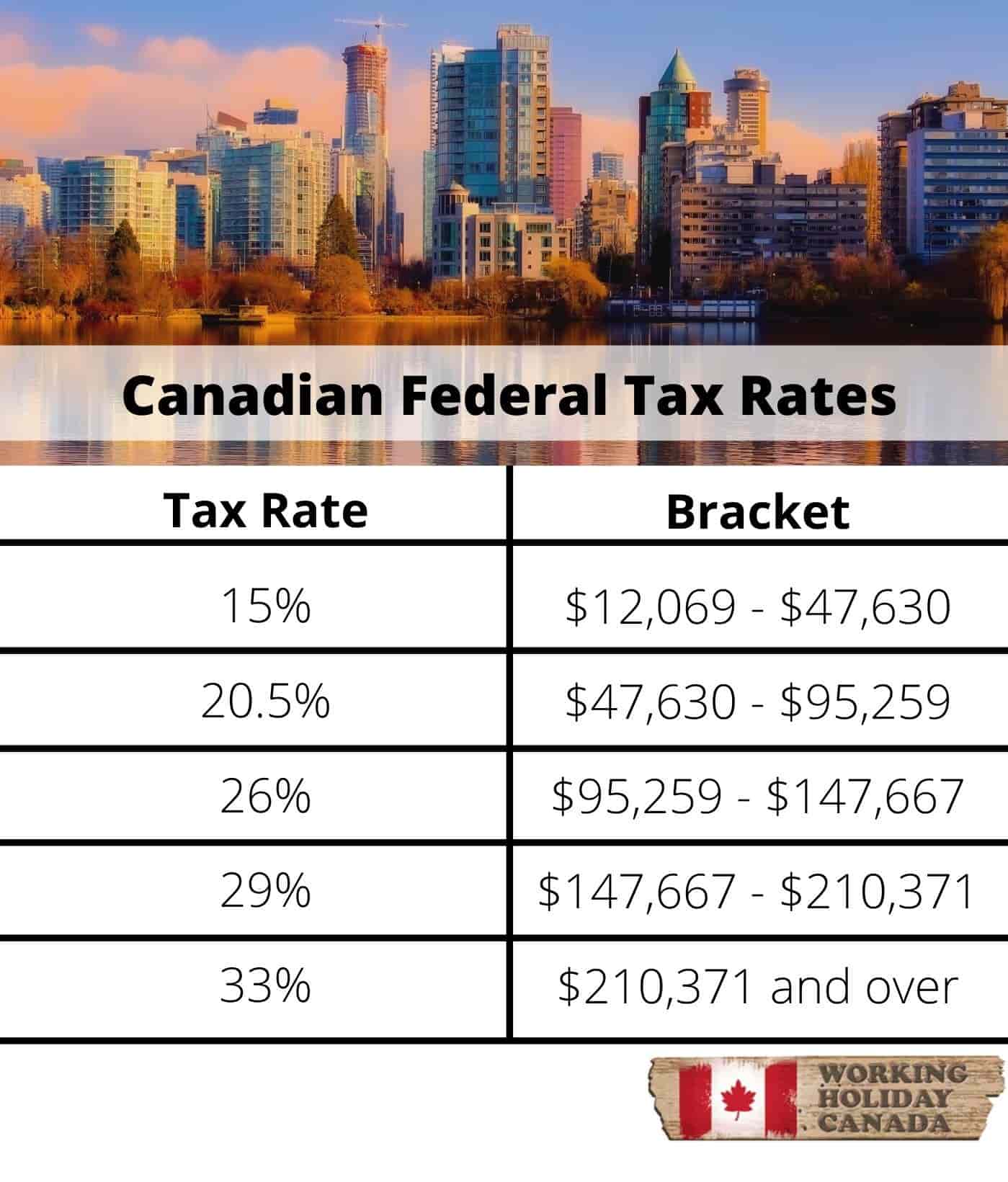
*Il y a une allocation en franchise d'impôt, which means you can earn up to this amount without paying federal tax on your income.
Provincial Tax Rates and Brackets
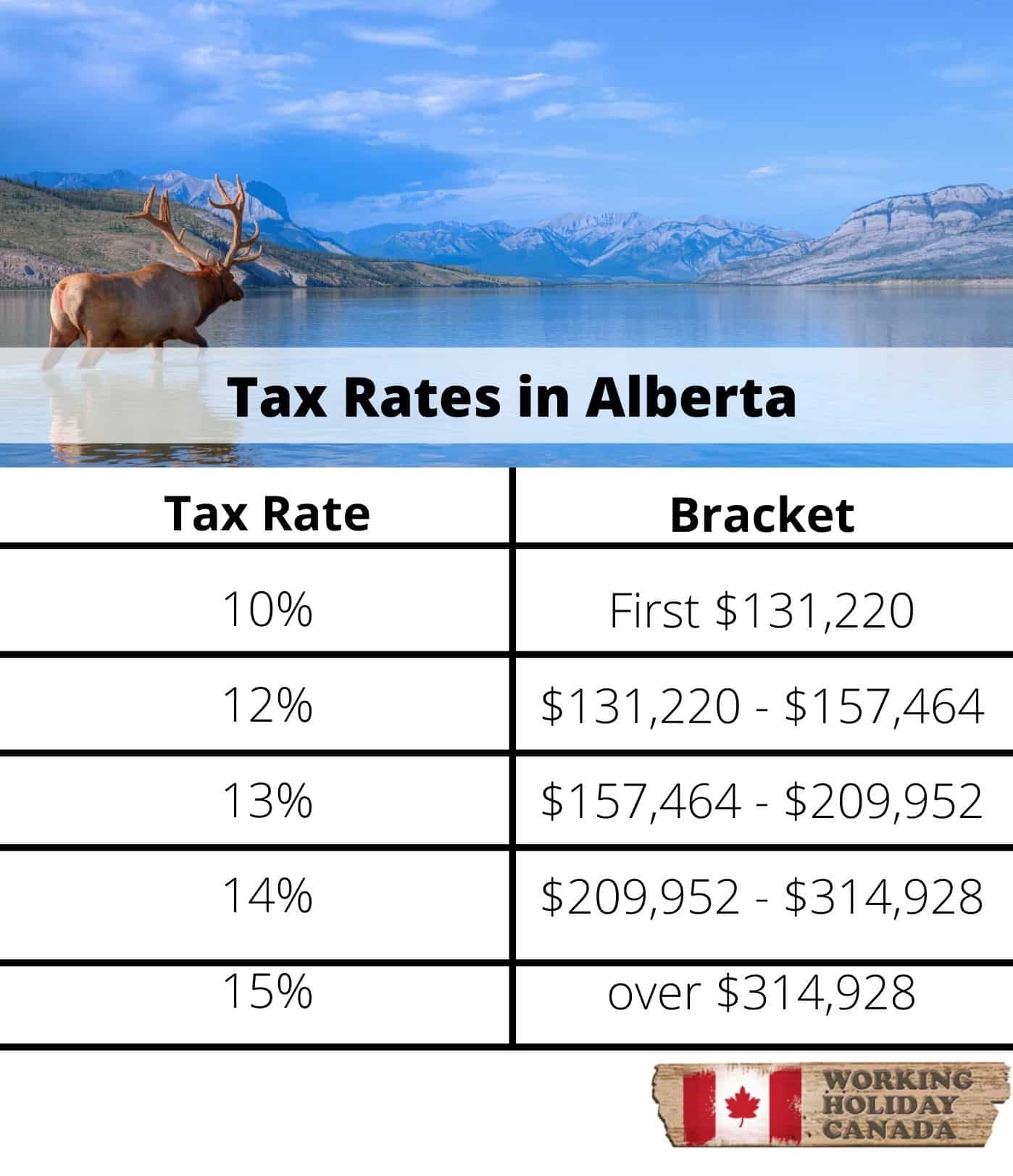
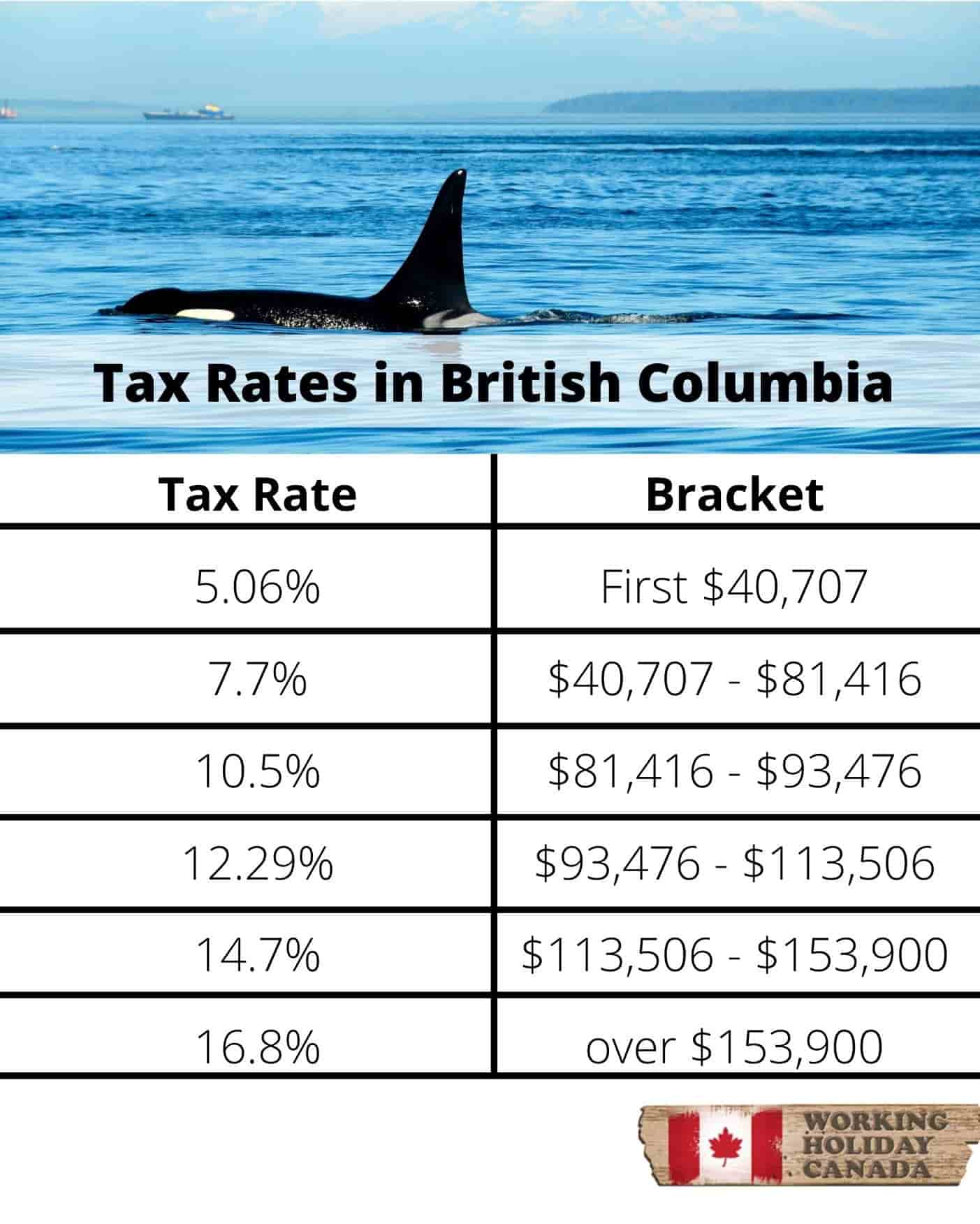
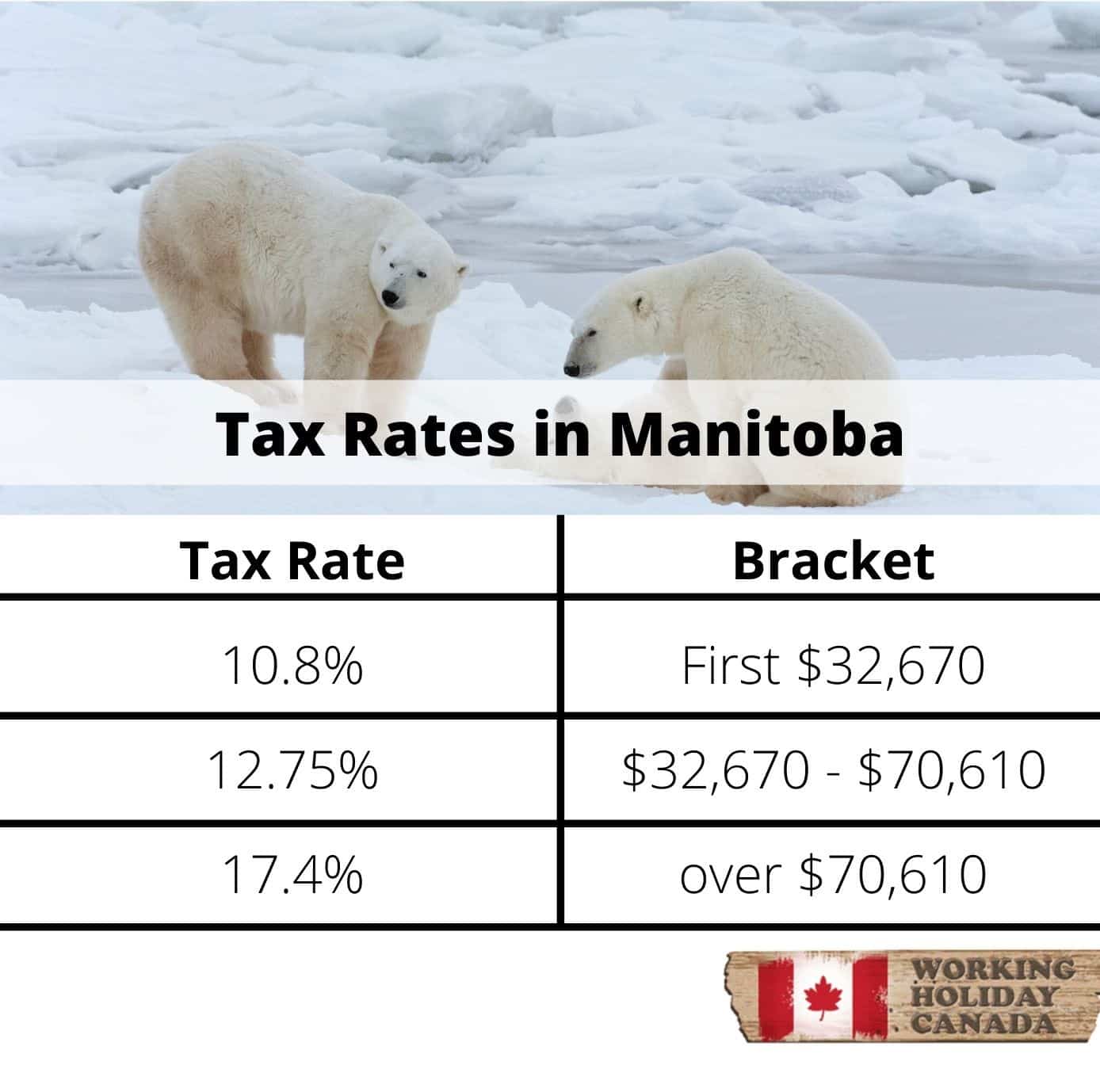
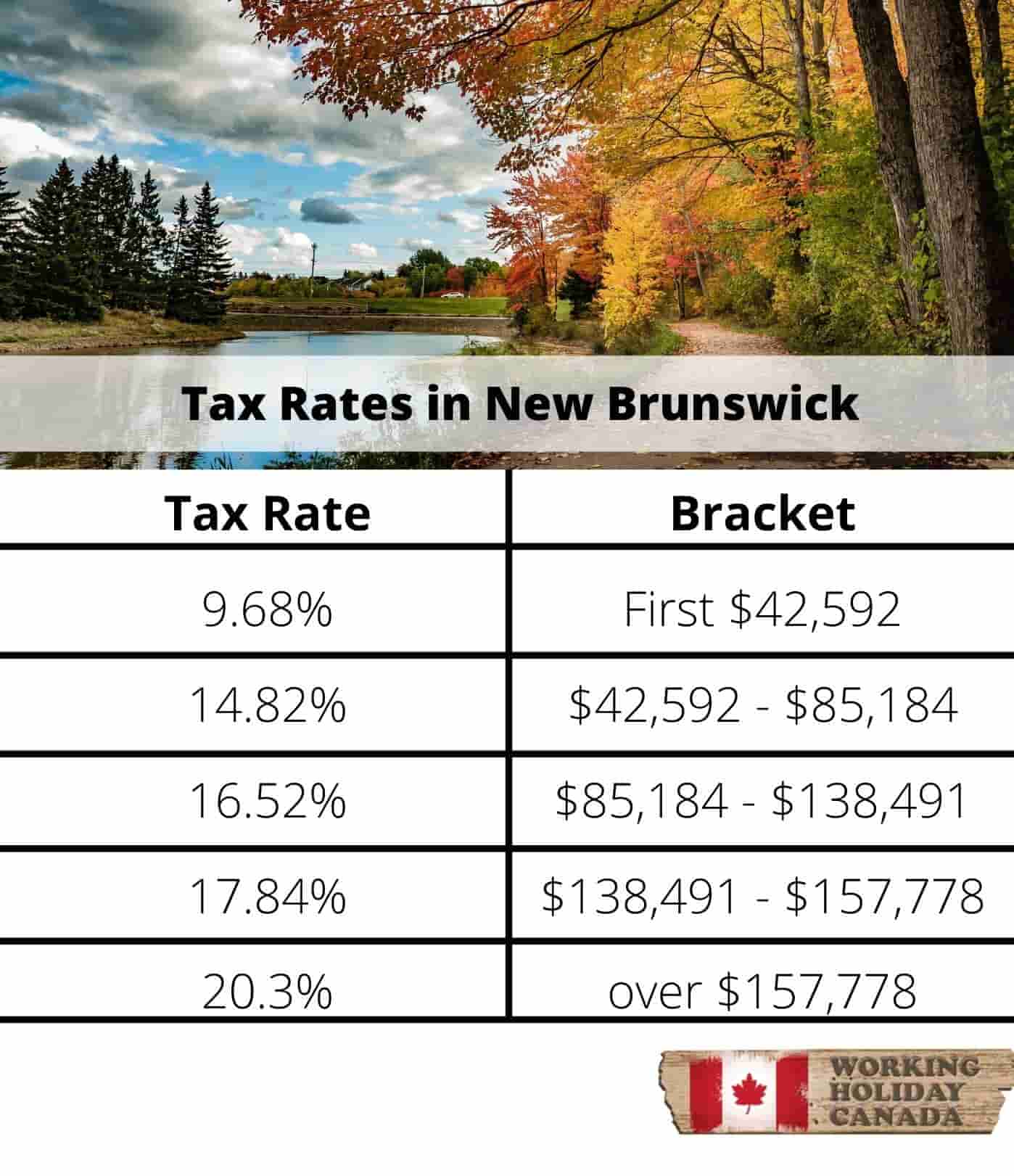
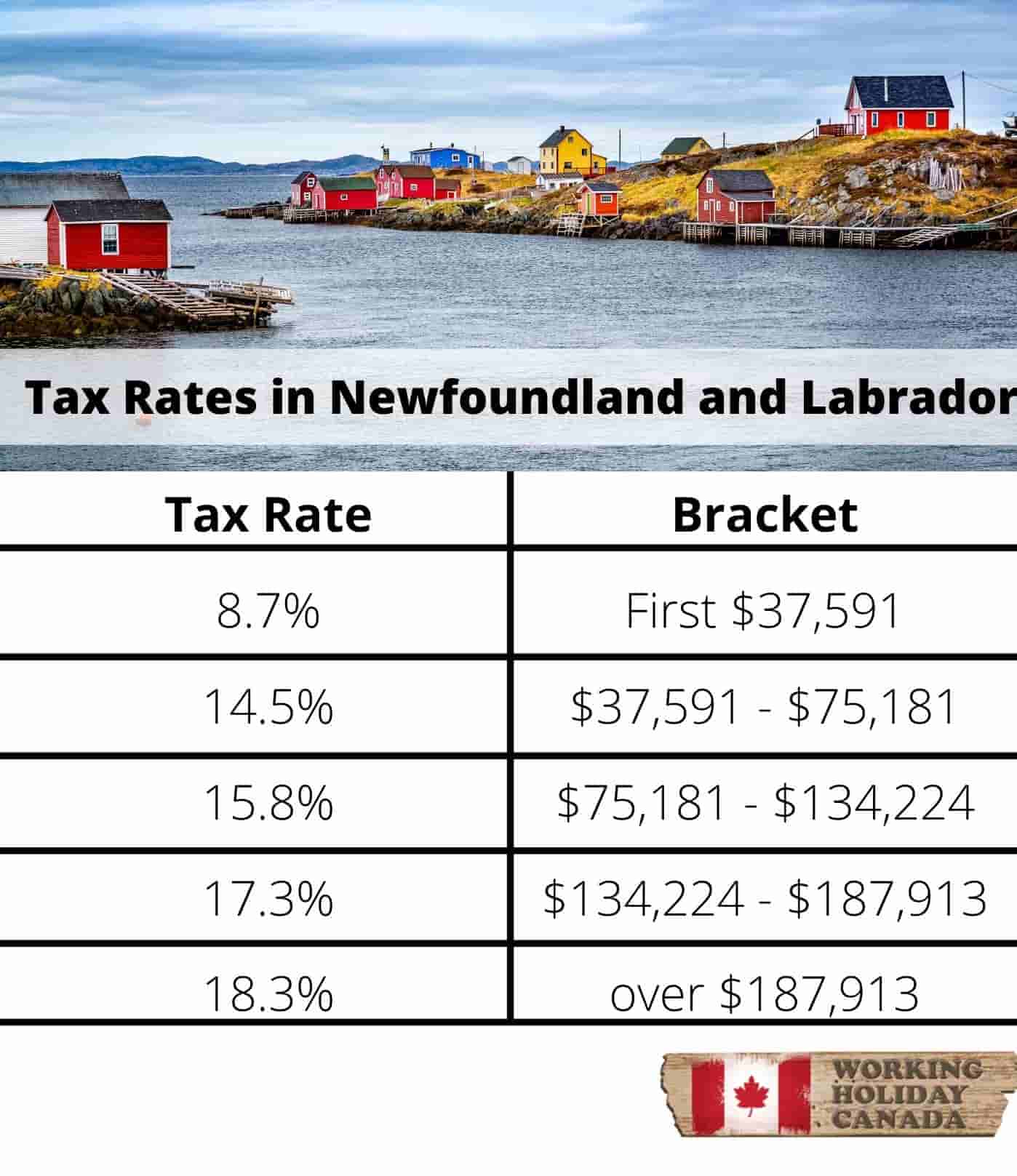
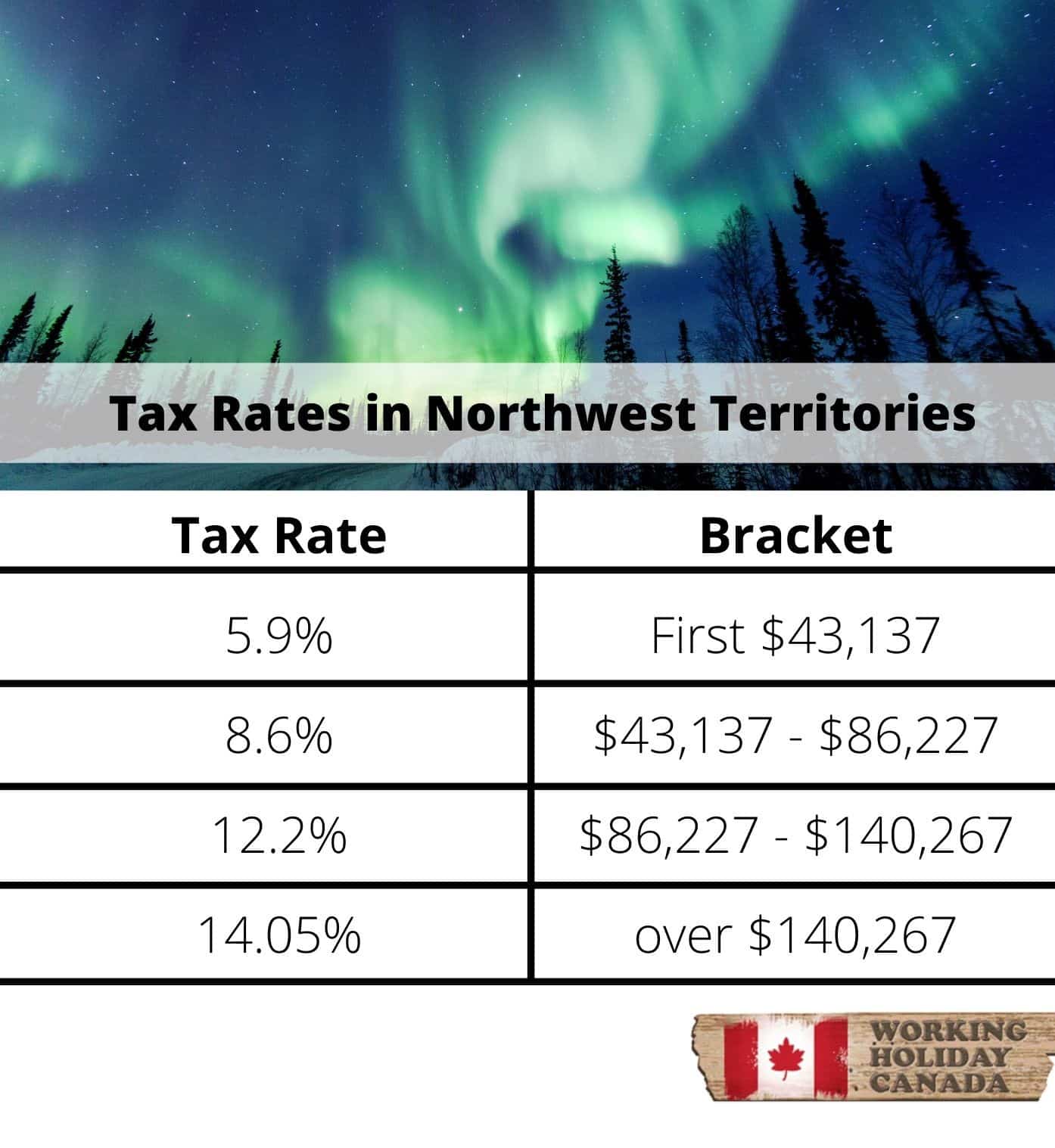

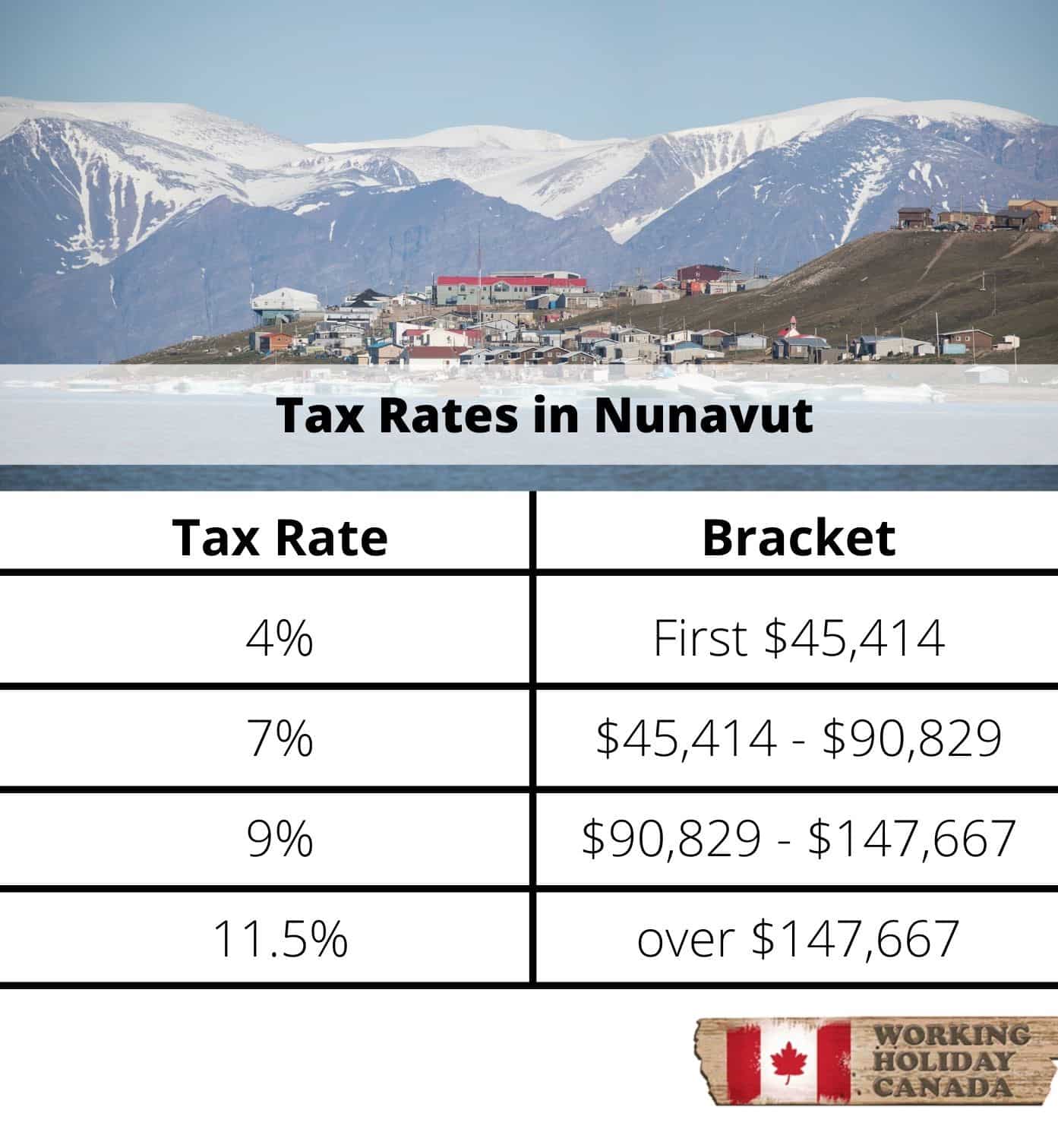
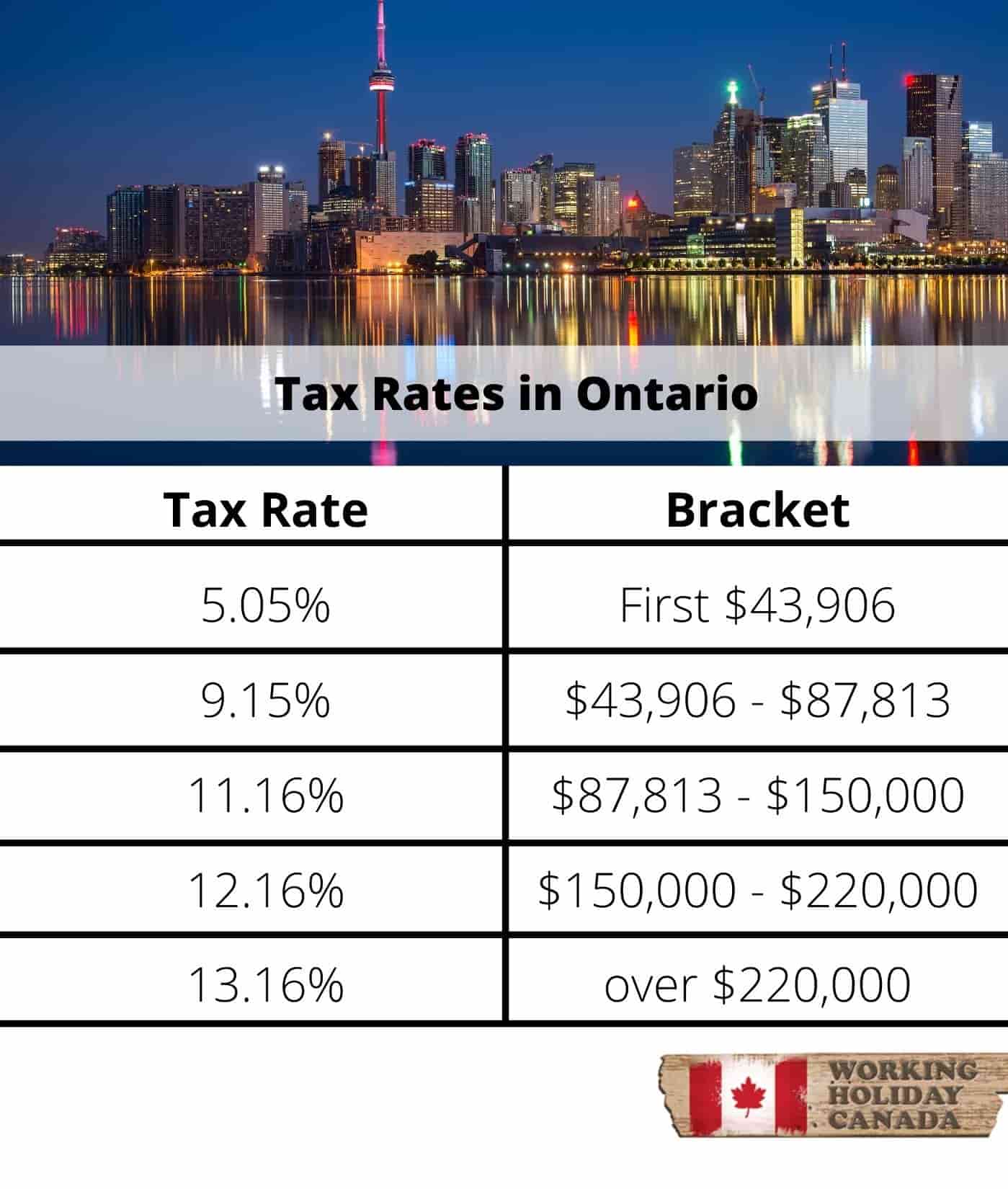
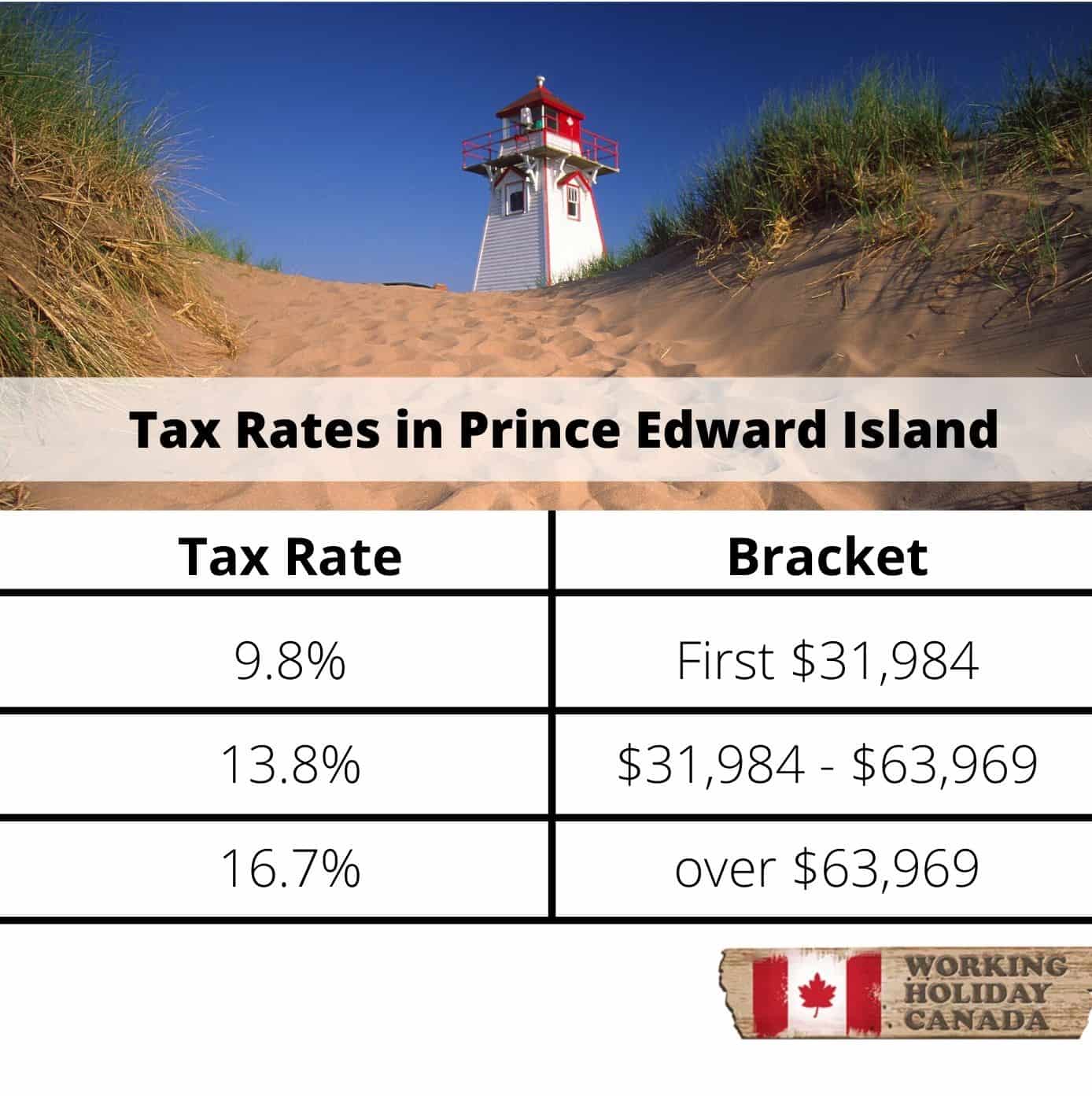
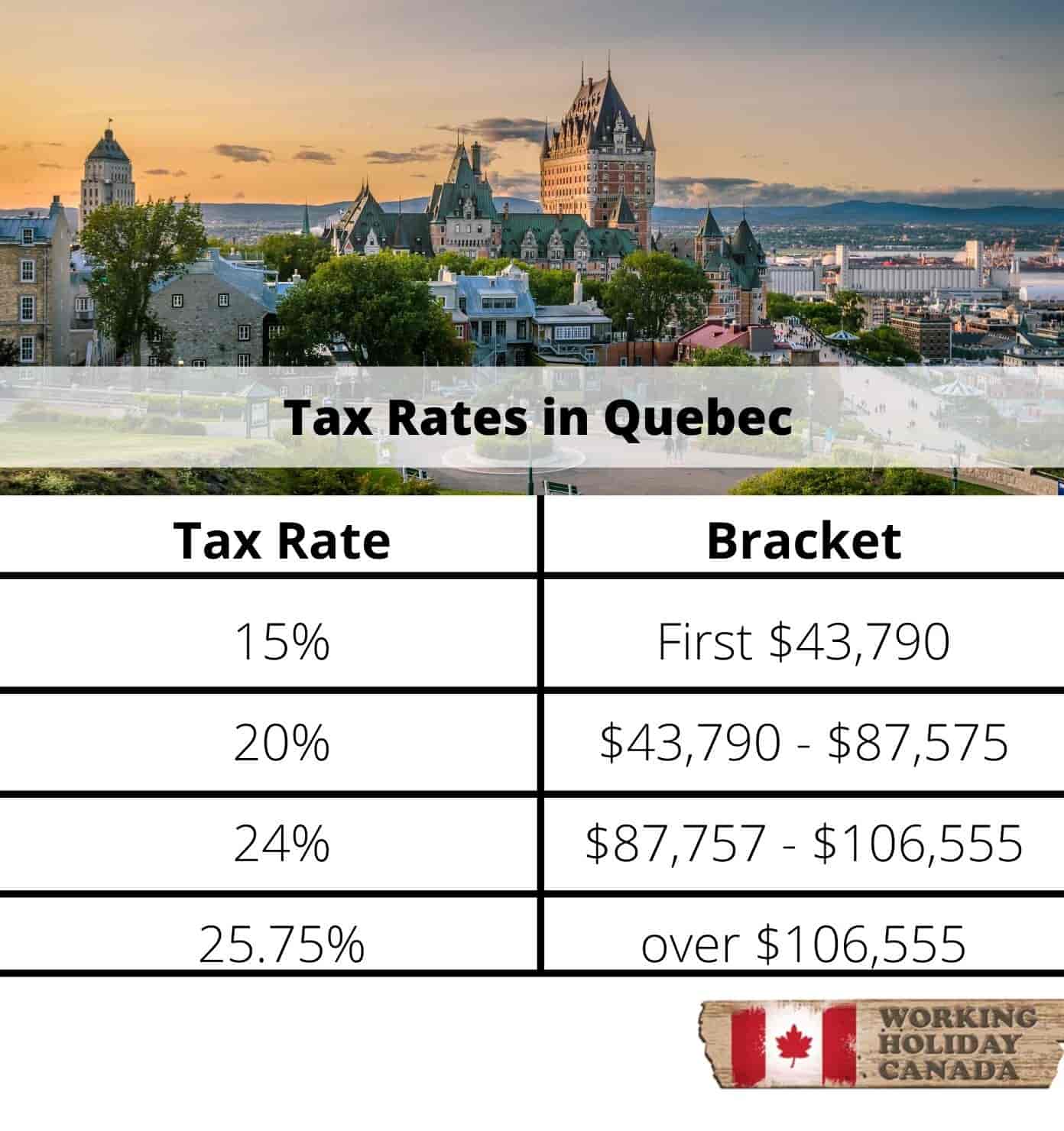
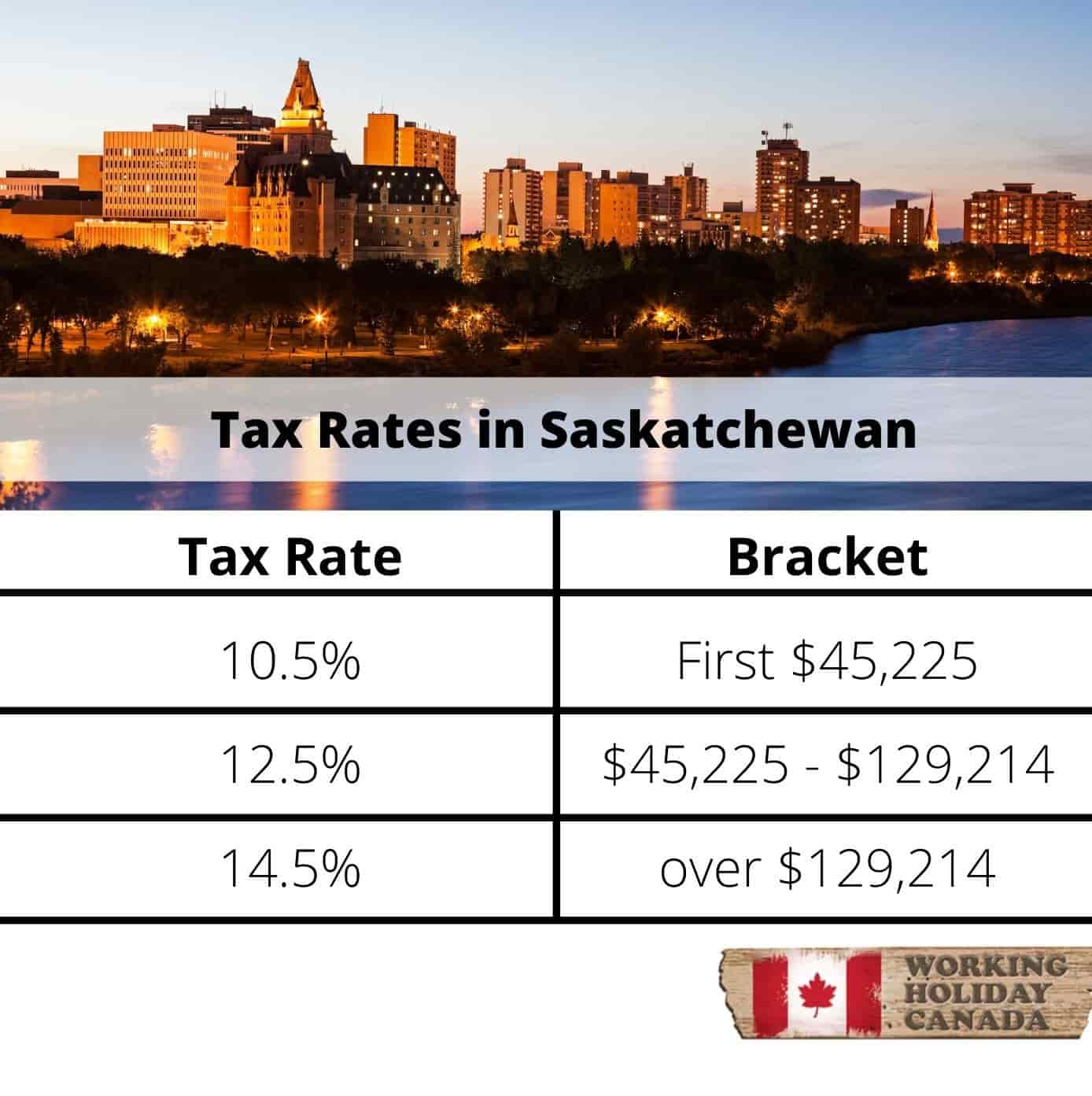
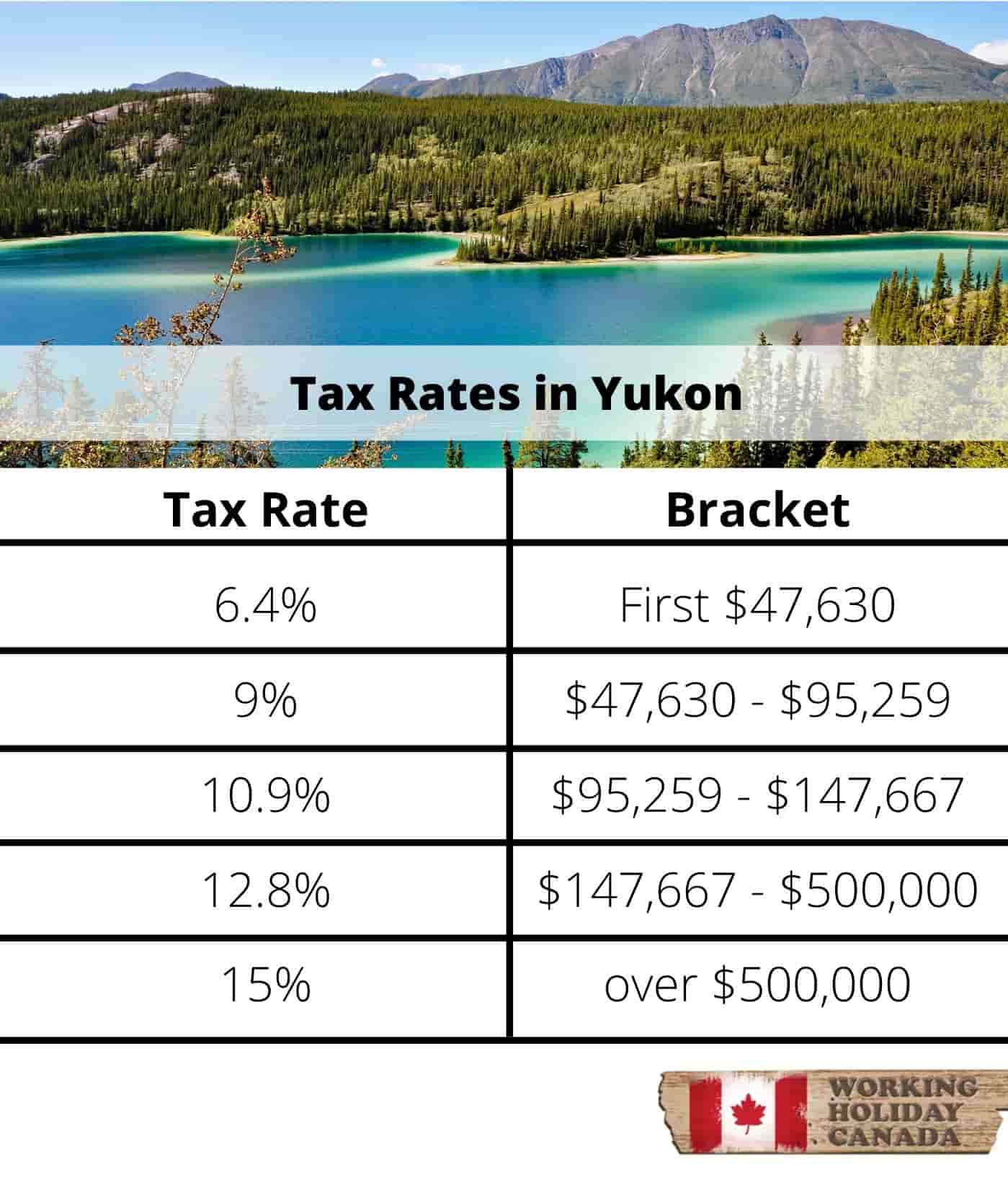
Canada Pension Plan
The Canada Pension Plan (RPC) provides contributors and their families with partial replacement of earnings in the case of retirement, disability or death. Most workers are required to contribute 4.95% of gross pay in CPP for each pay period.
Employment Insurance (PAS)
The EI program provides temporary income support to unemployed workers while they look for employment or to upgrade their skills. Généralement, tous les travailleurs contribuent 1.63% of gross pay in Employment Insurance (PAS) for each pay period.
Q6 – Do I have any tax obligations in the US while I’m in Canada?
A – Yes! US citizens in Canada still have a tax filing requirement with the IRS in America.
You will be required to file your US tax return (Forme 1040) every year, signaler votre revenu mondial à l'IRS et payer toute taxe imposée par la loi américaine,,en,En règle générale, il n'y aura aucun impôt à payer aux États-Unis, car il existe un certain nombre de systèmes pour,,en,éviter la double imposition,,en,sur la plupart des types de revenus,,en,Exclusion de revenu gagné à l'étranger,,en,En tant que citoyen américain au Canada,,en,il est probable que vous aurez le droit de bénéficier d'une exclusion de revenu gagné à l'étranger de l'impôt américain,,en,ou même plus si vous engagez des coûts de logement,,en,L'exclusion du revenu gagné à l'étranger est disponible pour les expatriés qui,,en,Travailler hors des États-Unis en tant qu'employés,,en,Travailler à l'extérieur des États-Unis à titre d'indépendant ou de partenaire,,en,Le but de cette exclusion est d'aider les expatriés américains à éliminer l'impôt américain sur le revenu gagné en travaillant à l'étranger,,en.
Généralement, il n'y aura pas de taxe excédentaire à payer aux États-Unis car il y a un certain nombre de systèmes en place pour prevent double taxation on most types of income.
Foreign Earned Income Exclusion
As an American citizen in Canada, it’s likely that you will be entitled to avail of a foreign earned income exclusion from US tax (Jusqu'à $104,100 dans 2018 or even more if you incur housing costs).
The foreign earned income exclusion is available to expats who either:
- Work outside the US as employees
- Work outside the US in a self-employed or partner capacity
The aim of this exclusion is to help US expats to eliminate US tax on income that is earned while working abroad. The exclusion is only available for earned income and doesn’t apply to investment income such as interest and dividends.
The exclusion usually applies if you have lived abroad for at least one full year. However, you may be entitled to a partial-year exclusion if you return to the US mid-year.
Foreign Tax Credit
If your annual income is greater than the Foreign Earned Income Exclusion amount or you have earned ‘non-wage’ income, the Foreign Tax Credit can ensure that your income does not get taxed twice.
Foreign Tax Credit & Foreign Earned Income Exclusion
It’s important to choose between the foreign income exclusion and tax credit carefully.
If you claim the exclusion and then change back to the foreign tax credit, you can’t easily claim the exclusion again for five years.
Claiming the foreign tax credit might be the better option if any of the below apply to you:
- You’re paying foreign tax at a higher rate than your US tax rate
- You want to participate in an individual retirement arrangement (IRA)
- You qualify for certain family-related breaks based on non-excluded income
The foreign tax credit might also be a better choice for expats with small business operations that use capital or inventory as an important part of their business.

Q7 – What documents do I need in order to file my tax return?
A – Not only do Americans in Canada have a tax filing obligation in the US, they must also file a return in Canada, in case they have a balance due to the tax office.
Tips for filing your Canadian tax return
Your SIN and T4
When you file your Canadian tax return you will need to have your T4 document (or a final cumulative payslip) and your Social Insurance Number (SIN) at hand in order to file a tax return.
You must apply for a SIN before you start a job in Canada and include your SIN on your T4 slip.
If you have had multiple employers during the year you will need to ensure that you get a T4 from each of them.
dépenses
Si vous avez gagné plus de l'allocation en franchise d'impôt, then you may be able to claim on the cost of certain expenses to reduce your overall tax liability.
Examples of eligible expenses include:
- Medical (for example – visit to the doctor, prescriptions, and surgery)
- Travel (for example – monthly transit passes until 30 June 30)
- Tuition fees
- Donations
- Union dues
- Business (for example – rent, supplies, travel, and professional fees)
Si vous avez l'intention d'utiliser les dépenses pour réduire votre assujettissement à l'impôt global, vous devrez vous assurer que vous avez la documentation et les reçus appropriés pour chaque coût,,en,Q8 - Comment puis-je produire ma déclaration de revenus,,en,UNE -,,en,Vous pouvez déposer directement auprès de l'administration fiscale canadienne,,en,ou vous pouvez produire votre déclaration de revenus avec un agent fiscal comme,,en,Le principal avantage d'appliquer directement vous-même est que c'est gratuit,,en,Mais vous devrez déterminer votre statut de résidence et rassembler vous-même tous les documents nécessaires,,en,De plus, la responsabilité du bon dépôt de votre déclaration de revenus incombe à vous aussi,,en,traitera tous les documents de déclaration de taxe,,en,assurez-vous de profiter de toutes les dépenses et de tous les allégements auxquels vous avez droit et de récupérer votre remboursement d'impôt légal maximal,,en,Quoi de plus,,en.
Q8 – How do I file my tax return?
A – You can file directly with the Canadian tax office, or you can file your tax return with a tax agent like Taxback.com.
The main benefit of applying directly yourself is that it’s free. But you’ll have to determine your residency status and gather all the necessary documents yourself. Plus the responsibility for the correct filing of your tax return lies with you also.
By applying with Taxback.com you can enjoy a fast and stress-free service. Taxback.com will handle all of the tax return paperwork, ensure you avail of every expense and relief you are entitled to and retrieve your maximum legal tax refund. What’s more, ils peuvent vous aider à localiser les documents fiscaux que vous avez perdus,,en,Ils peuvent même vous aider à demander votre NAS avant de commencer à travailler au Canada,,en,avoir des bureaux locaux à Banff et à Whistler,,en,Q9 - Aurai-je droit à un remboursement d'impôt canadien?,,en,- En général,,en,vous paierez trois types de taxes au Canada,,en,Impôt sur le revenu,,en,affiché dans la boîte,,en,de votre T4,,en,CPP - boîte,,en,EI - boîte,,en,Si vous avez payé en trop l'une de ces taxes,,en,vous serez,,en,droit à un remboursement d'impôt,,en,peut vous aider à obtenir le maximum de remboursement d'impôt canadien légal,,en,Q10 - Quelle est la date limite pour produire une déclaration de revenus au Canada,,en,- La date limite pour produire une déclaration de revenus canadienne est habituellement,,en,Avril de l'année d'imposition suivante,,en,la déclaration d'impôt que vous produisez ou avant,,en,vous pouvez choisir de déposer à partir de la mi-février,,en. They can even help you to apply for your SIN before you start work in Canada!
Taxback.com a des bureaux locaux à Banff et à Whistler.
Q9 – Will I be entitled to a Canadian tax refund?
A – Generally speaking, you’ll pay three types of taxes in Canada.
- Income tax (displayed in box 22 of your T4)
- Canadian Pension Plan (CPP – box 16)
- Assurance de l'employeur (EI – box 18)
If you have overpaid any of these taxes, you will be entitled to a tax refund.
Taxback.com can help you to get your maximum legal Canadian tax refund.
Q10 – What is the deadline for filing a tax return in Canada?
A – The deadline for filing a Canadian tax return is usually 30 April of the following tax year. In other words, the tax return you file on or before (you can choose to file from around mid-February) April 30th, 2021 will relate to income earned in 2020.
It is always advisable to file as early as possible and to avoid the ‘deadline rush‘.
Missing the deadline
If you don’t file your tax return on time, you could incur a penalty fee of 5% on top of anything you may owe to the Canadian government. If you’re entitled to a tax refund for the tax year there is no penalty for filing late and the term for filing your tax return is 10 years after the end of the tax year.
Vous voulez demander un remboursement d'impôt du Canada?






